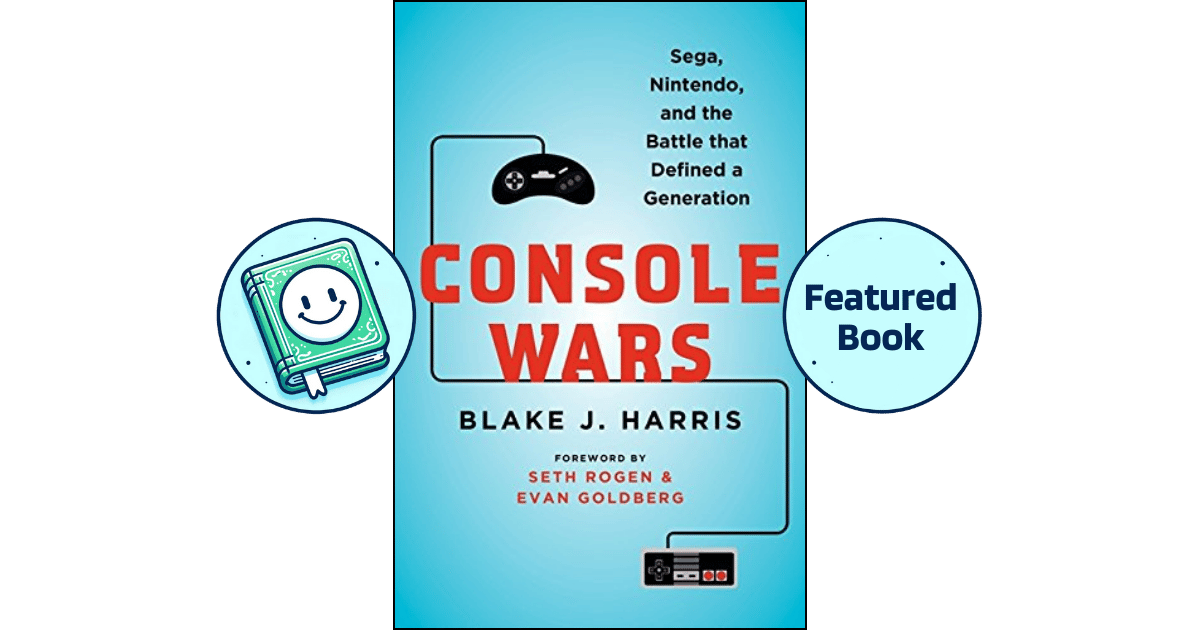- Slightly Smarter
- Posts
- 🎮 Sega vs. Nintendo
🎮 Sega vs. Nintendo
The '90s showdown that changed the video game industry forever. Insights from Console Wars by Blake J. Harris.
Happy Tuesday.
🔍️ Today’s book is Console Wars: Sega, Nintendo, and the Battle that Defined a Generation by Blake J. Harris, a masterful storyteller and historian of the gaming industry.
📕 In the book, Harris takes us behind the scenes of Sega’s audacious challenge to Nintendo’s monopoly, revealing the strategies, personalities, and innovations that shaped modern gaming.


SMARTEST TAKEAWAYS
Disrupt or Be Disrupted
➡️ Bold Marketing: Sega's edgy "Genesis does what Nintendon't" campaign showed how challenger brands can use provocative marketing to stand out. It wasn’t just a catchy slogan; it was psychological warfare aimed at convincing consumers that Sega was the rebellious, cutting-edge choice compared to the more conservative Nintendo.
➡️ New Demographics: Rather than competing head-to-head with Nintendo's family-friendly titles, Sega targeted teenagers and young adults which expanded the market beyond kids. To do this, Sega created the character Sonic the Hedgehog as an edgier alternative to Mario, and partnered with celebrities and sports leagues to broaden gaming’s appeal.
➡️ Cultural Relevance: Nintendo's approach to localization went beyond translation; they tailored games to fit cultural contexts. For example, the character Kirby was made cuter for Western audiences, which significantly boosted its popularity. This careful attention to cultural nuances helped Nintendo maintain a global appeal.
➡️ Cultural Conflict: The contrast between Sega's aggressive American subsidiary and its conservative Japanese parent highlights the impact of corporate culture on strategy. It’s a significant theme in the narrative.
INSIGHTFUL EXAMPLE
Aggressive Pricing
One standout example in Console Wars is Sega’s decision to price the Sega Genesis lower than the competition, sacrificing short-term profits for long-term market share. This bold move significantly increased their market presence and forced Nintendo to rethink its strategies.
A QUOTE TO REMEMBER
Forward-thinking Marketing
Experiences like these led him to believe that the fundamental problem with marketing was its reliance on the past. It looked backward, not forward, and failed to take into account innovation, trends, or cultural shifts in taste.


DID YOU KNOW?
The Origins of Nintendo
Nintendo started as a playing card company in 1889. Founder Fusajiro Yamauchi created handmade hanafuda cards, a flower-themed card game, which became popular in Japan and laid the foundation for the company's future success.
LEVEL UP CHALLENGE
Cultivate a Unique Identity
How can you differentiate yourself from the competition?
Can you take inspiration from any of tactics Sega or Nintendo used?


Help Us Get Slightly SmarterHow did you like today's email? |



